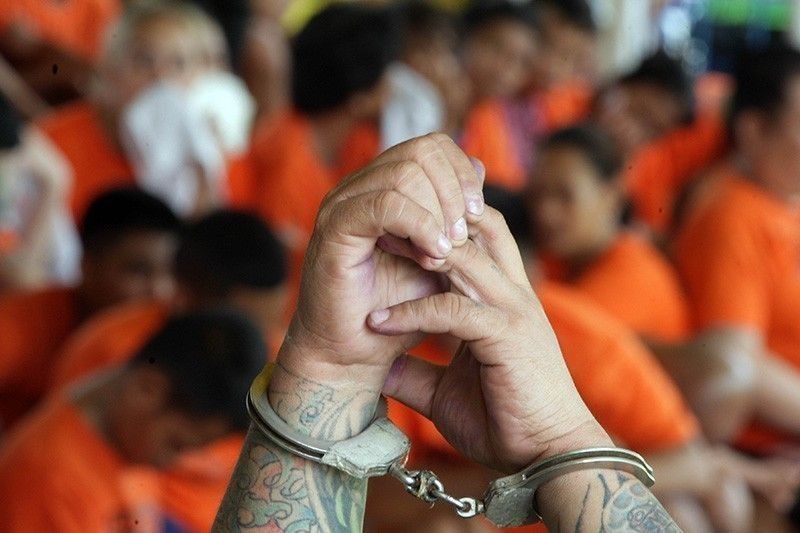US report: Judicial independence 'generally respected' but threats remain

MANILA, Philippines — A report from the US State Department flagged “significant problems” in the past year that affected the independence of the Judiciary, including the continued threats to the legal profession and slow trial proceedings.
The US State Department 2020 Country Reports on Human Rights Practices in the Philippines noted that the law provides for an independent judiciary. But while the government "generally respected judicial independence, pressure, threats and intimidation directed at the judiciary from various sources were reported by [non-governmental organizations] during the year,” it said.
The report noted that as of July last year, six lawyers had been killed.
The number of slain lawyers only increased in the latter part of 2020. The latest tally from the Free Legal Assistance Group showed 61 lawyers have been killed since June 2016, the start of President Rodrigo Duterte’s administration.
READ: The road to rare SC statement on attacks on lawyers: Threats, killings, and pleas to courts
The report has also flagged corruption in the justice system through nepotism and sometimes bribery contributed to “relative impunity for wealthy or influential offenders.”
“These factors contributed to widespread skepticism that the criminal justice system delivered due process and equal justice,” the report added.
Groups had criticized the government for its inconsistent application of the law during the pandemic, especially in cases of quarantine violators, thousands of whom were arrested and fined.
Justice Secretary Menardo Guevarra said in response that “known personalities” were prosecuted too.
The complaint against Sen. Aquilino "Koko" Pimentel III however was ultimately junked by the prosecution. Following the clearance of the senator on his protocol breach, Guevarra said: “I would like to assure the people that the DOJ is committed to administer our criminal justice system as fairly and equitably as possible.”
SPECIAL REPORT: Driven by hunger, urban poor go out for rumored relief drive but are haled into court instead
Vacancies and delayed trials
The Philippine Constitution provides for the right to a speedy, impartial and public trial, but the report said that while trials were generally public, these were delayed and questions on impartiality hound the judicial process.
Trial hearings are conducted months apart, considering the availability of court and witnesses, and this also further contributed to delays, the report said. Insufficient number of personnel also compounded slow trial process.
"There was a widely recognized need for more prosecutors, judges, and courtrooms. As of June 30, approximately one-third of authorized bench positions (563 positions) were unfilled," it said.
Vacancies at Shariah courts are particularly difficult to fill, as applicants must be members both of the Integrated Bar and Shariah Bar. Training for them for Shariah prosecutors is also “brief and considered inadequate,” it added.
The government generally implemented requirements in trial such as informing the defendant of charges against them, be given counsel, and assured of rights to confront witnesses and present evidence in their favor, and appeal convictions, “except the right to a speedy trial.”
It noted that the law provides that cases should be resolved within three months to two years, “government officials estimated it took an average of five to six years to obtain a decision.”
The report noted that courts may appoint any lawyer in court to provide counsel to the accused during pre-trial hearings. Poverty however often hindered an accused to access to effective legal counsel.
The Public Attorney’s Office, which provides legal assistance to indigent litigants and underprivileged members of society, has limited resources to fulfill its mandate, it added.
“Sentencing decisions were not always consistent with legal guidelines, and judicial decisions sometimes appeared arbitrary,” it also said.
The report however noted that the SC “continued efforts to provide speedier trials, reduce judicial malfeasance, increase judicial branch efficiency, and raise public confidence in the judiciary.”
Recently retired Chief Justice Diosdado Peralta, who led the Judiciary in 2020, said the SC approved 18 procedural rules and guidelines to improve the administration of justice and address court congestion.
In the face of mounting pressure from concerned groups and the legal profession, the SC also issued a strongly worded statement on March 23 — on the occasion of Peralta’s last full court session — and condemned the continued attacks on the legal profession.
- Latest
- Trending
































